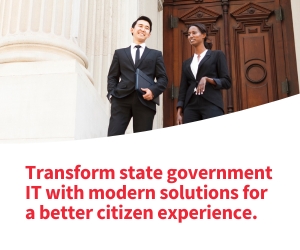What Does a Platform Engineer Do?
While developers focus on building an end product, platform engineers ensure that those developers have the tools and processes to do their jobs effectively.
“Platform engineers are primarily responsible for designing and maintaining an internal developer platform that supports software delivery systems’ seamless operation while monitoring for performance issues and patching them up as needed,” says Bill Rowan, Splunk’s vice president of public sector.
Much of their efforts are aimed at ensuring that state and local applications meet the highest levels of security.
“A badly constructed IT infrastructure is an open door for bad actors,” Rowan says. “To mitigate security threats, platform engineers implement security protocols and best practices, such as debugging applications, updating internal systems and assessing potential risks, to ensure that the organization can continue operations amid a cyberattack.”
Platform engineers ensure that the wheels all turn smoothly. This may include, for example, “automating the product development lifecycle, such as testing, deployment and configuration,” he says. “Automation enables teams to accelerate infrastructure design, reduce errors and improve efficiency in an otherwise tedious, manual process.”
When application failures or security risks arise, “automated processes empower platform engineers to take the time necessary to find the root cause of an issue and address it swiftly,” he says.
Typically, these engineers will bring a mix of skills to the table. Platform engineering requires people who know “how to operate the infrastructure and maintain it, but who also understand the developer, since the platform they’re building is for the developer,” Ramirez says. “So, you’re starting to see a mix of folks that are hardware savvy and software developer-capable.”













